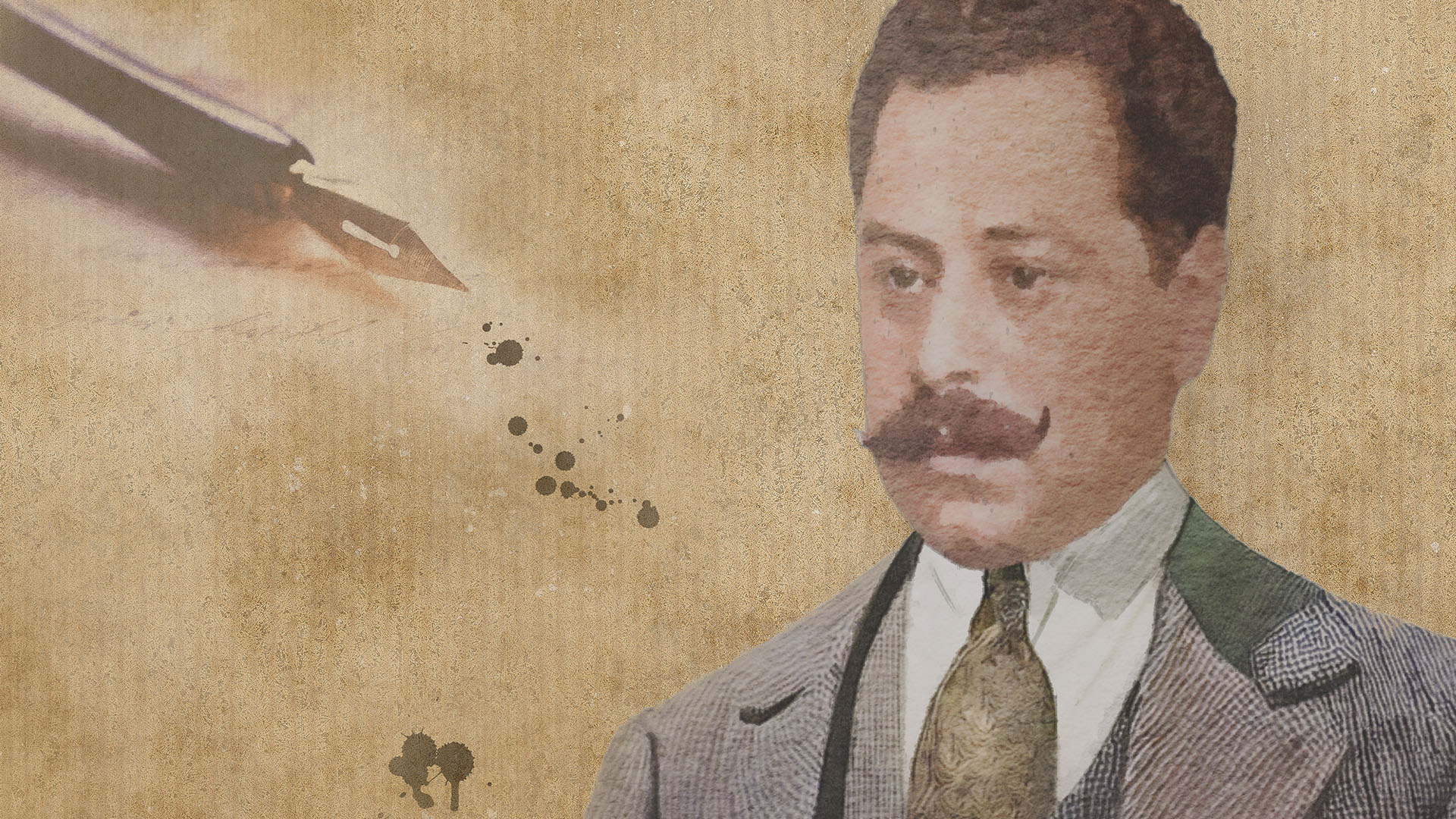Roberto de Mesquita is one of the most remarkable names in Portuguese symbolist poetry. Born in Santa Cruz das Flores, on the island of Flores, on 19th June 1871, he lived uninterruptedly in the Azores archipelago.
He attended elementary school in Terceira and Faial, having worked for some years in the Flores Island towns of Santa Cruz and Lajes and also in S. Roque do Pico and in Corvo, as a clerk of the Treasury, and only once left the Azores, in 1904, having visited some cities in mainland Portugal.
Devoting himself to a professional occupation that offered no motivation and having contracted an apparently unhappy marriage, he led a reserved life, tempered only by reading and by music in the Florentine Musical Union Philharmonic, where he was first clarinet.
Through his brother, Carlos Mesquita, a teacher in Viseu, he stayed connected with what was happening in the Portuguese and European literary circles, composing his poetic work, which, although small – a book of poetry and about two dozen poems published dispersed in local newspapers and magazines.
His only book, “Almas Cativas” (Captive Souls), was published in 1931, eight years after his death, with a modest print run, which seemed doomed to failure, as it went totally unnoticed in the Portuguese cultural environment. However, Vitorino Nemésio noticed it a few years later, finding “an emotional sadness, almost climacteric, that touches a soul numbed by the humidity of the Azores”. From then on, his work began to be known and quickly recognised as the best that symbolism had produced in Portuguese. With a preface by Pedro da Silveira, Almas Cativas was re-published in 1973 and in 1989.
Roberto de Mesquita died in his hometown, on 31st December 1923, while reciting verses of French Symbolists and Portuguese poets, and his literary work was only acknowledged posthumously.
Roberto de Mesquita
